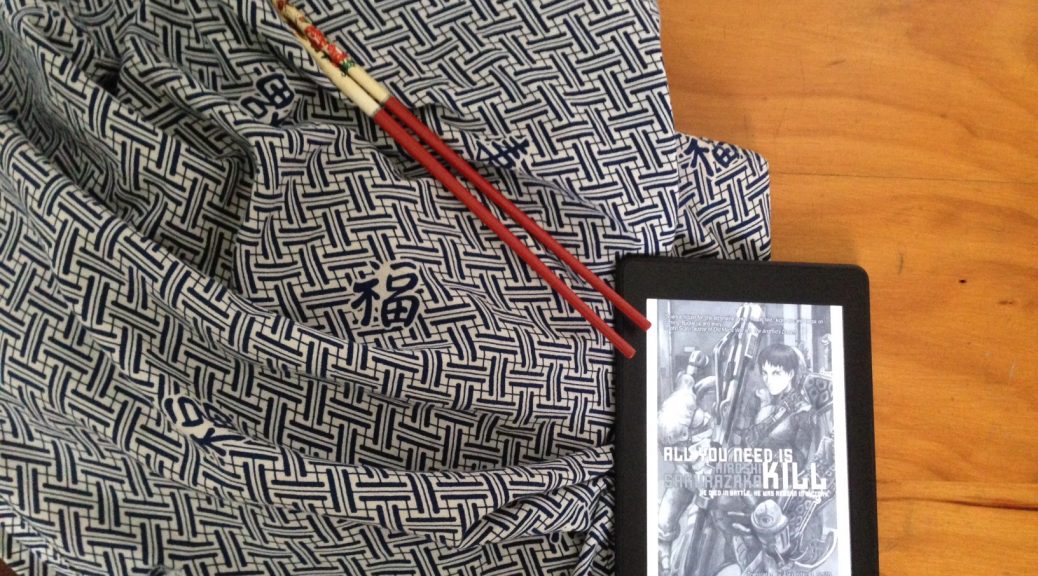Long before this challenge was even a kernel in my mind, I arranged one of my bookshelves into countries and regions. One of these is devoted to Japanese literature, with Haruki Murakami’s presence predominating. I’m not sure exactly what prompted my impassioned foray into Japanese literature. Perhaps it was an unconscious seed planted from the memory of my Japanese childhood friend Megumi, and of my aunt, uncle, and their youngest son’s time spent in Tokyo.
They lived in Japan for three years and in that time my aunt (who is also my godmother) and uncle regaled their family with gifts. Go into our homes, and you will almost inevitably uncover a token of Japan on a wall, shelf, or in a cupboard. For my seventh Christmas, she gave my parents, my brother, and me gowns from Japan. Twenty-seven years later I’m still wearing it; although it’s no longer floor-length!
For the Japanese leg of my challenge, I chose All you Need is Kill by Hiroshi Sakurazaka. I downloaded it on my Kindle after I watched Edge of Tomorrow, which is based on the book. I enjoyed the movie and its time-travelling premise. Upon realising the source material was a Japanese book, I determined to read it.
All You Need is Kill’s central conceit is of a Japanese soldier reliving the same day and the same post-apocalyptic battle against an alien race over and over. Edge of Tomorrow retains the basic plot, but the book’s pace outstrips the movie’s, and the protagonist’s sense of déjà vu-like bewilderment, the crazy exhilaration of trying to perfect one day, and his ultimate frustration is conveyed with far more style.
Said protagonist is Keiji Kiriya, who is more of an everyman than Tom Cruise’s coward-cum-hero William Cage, making Kiriya’s transformation more satisfactory. His kick-ass time-looping companion Rita Vrataski, is also much better developed. Don’t get me wrong, Edge of Tomorrow is a decent sci-fi adventure, but it’s far more invested in apocalyptic action and a Hollywood ending than the smart, sharp, stylish slice of science fiction that is the book.
There is what we desire to do, and what we are able to do. When those two things don’t coincide, which path should we pursue to find happiness? – Hiroshi Sakurazaka

And I still love Japan! Thank you for your kind words Claudia! Cannot wait to read about your next book!